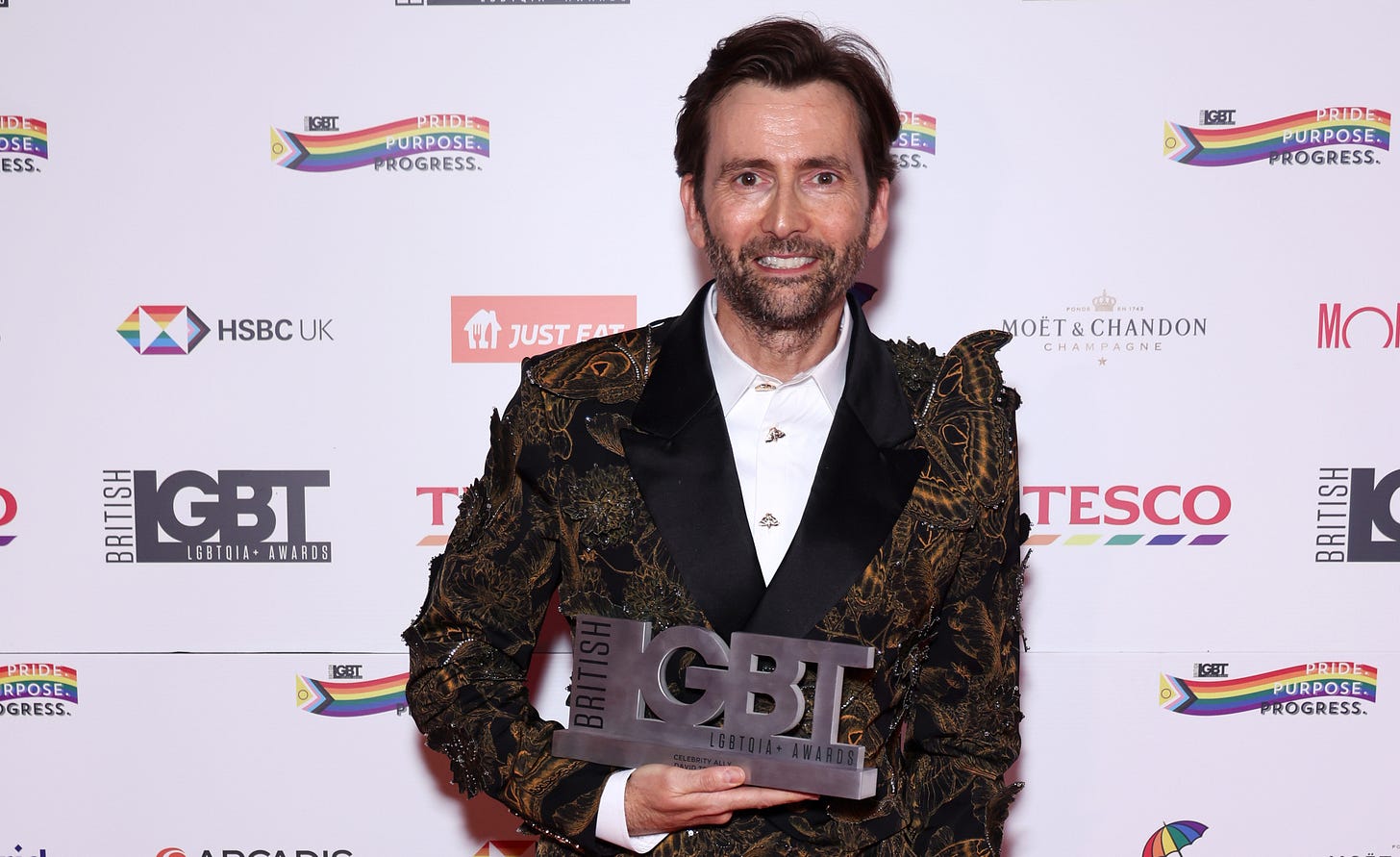The ideological capture of the entertainment industry
We shouldn’t be surprised to see TV stars delivering sermons.
With the exception of the Worst Picture gong at the “Razzies”, perhaps the least coveted prize in the entertainment industry is “Celebrity Ally” at the British LGBT Awards. The latest recipient is the actor David Tennant who, at the award ceremony this week, used his acceptance speech as an opportunity to rail against the equalities minister Kemi Badeno…



